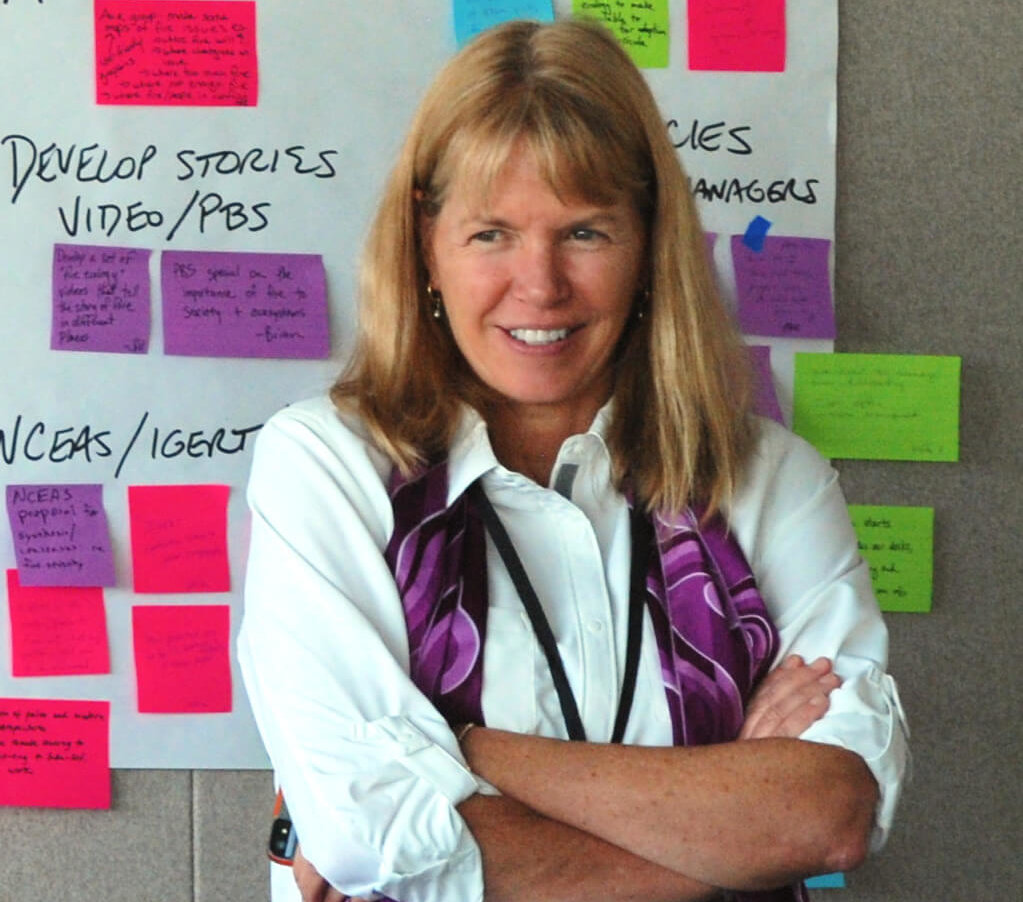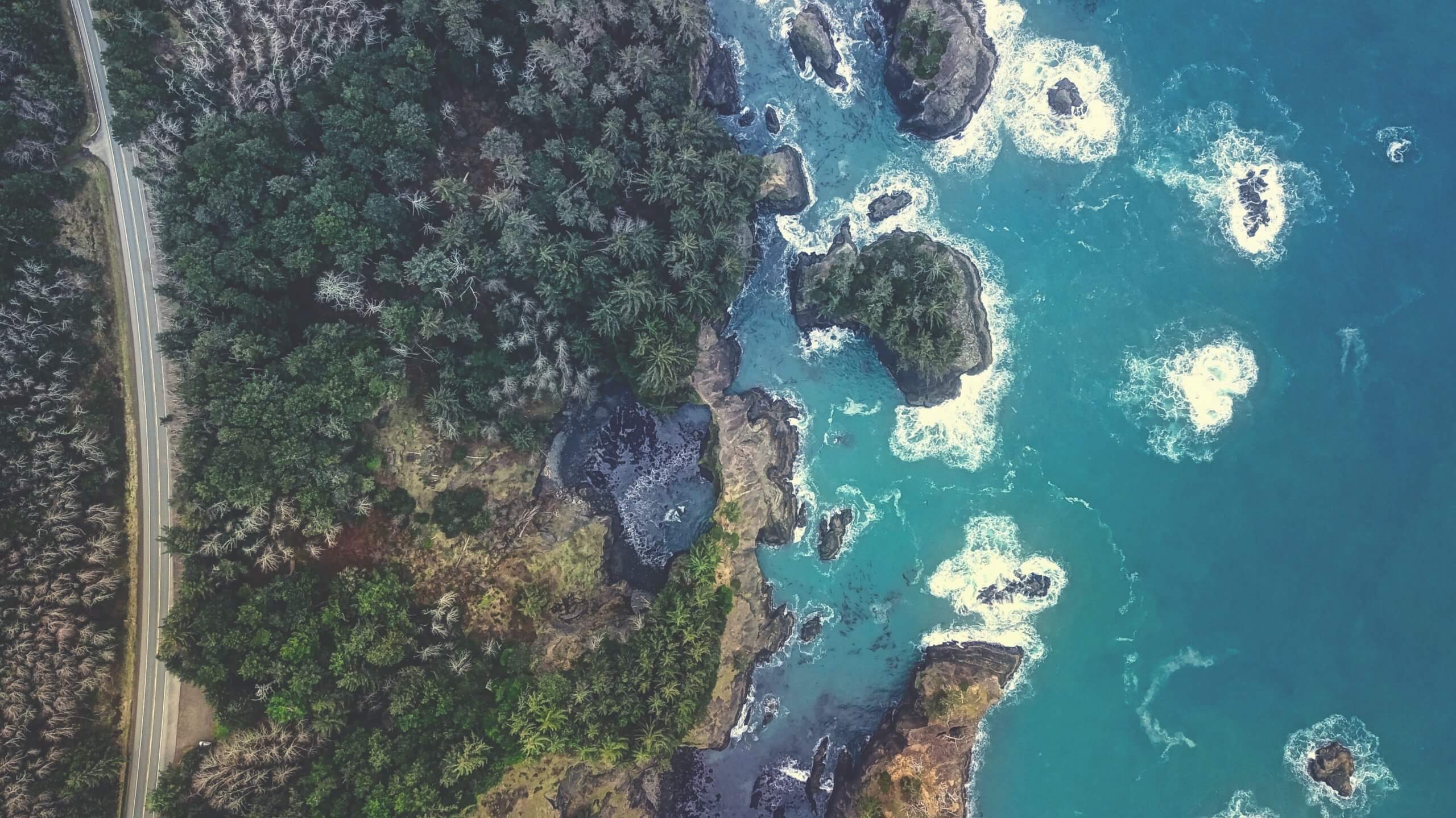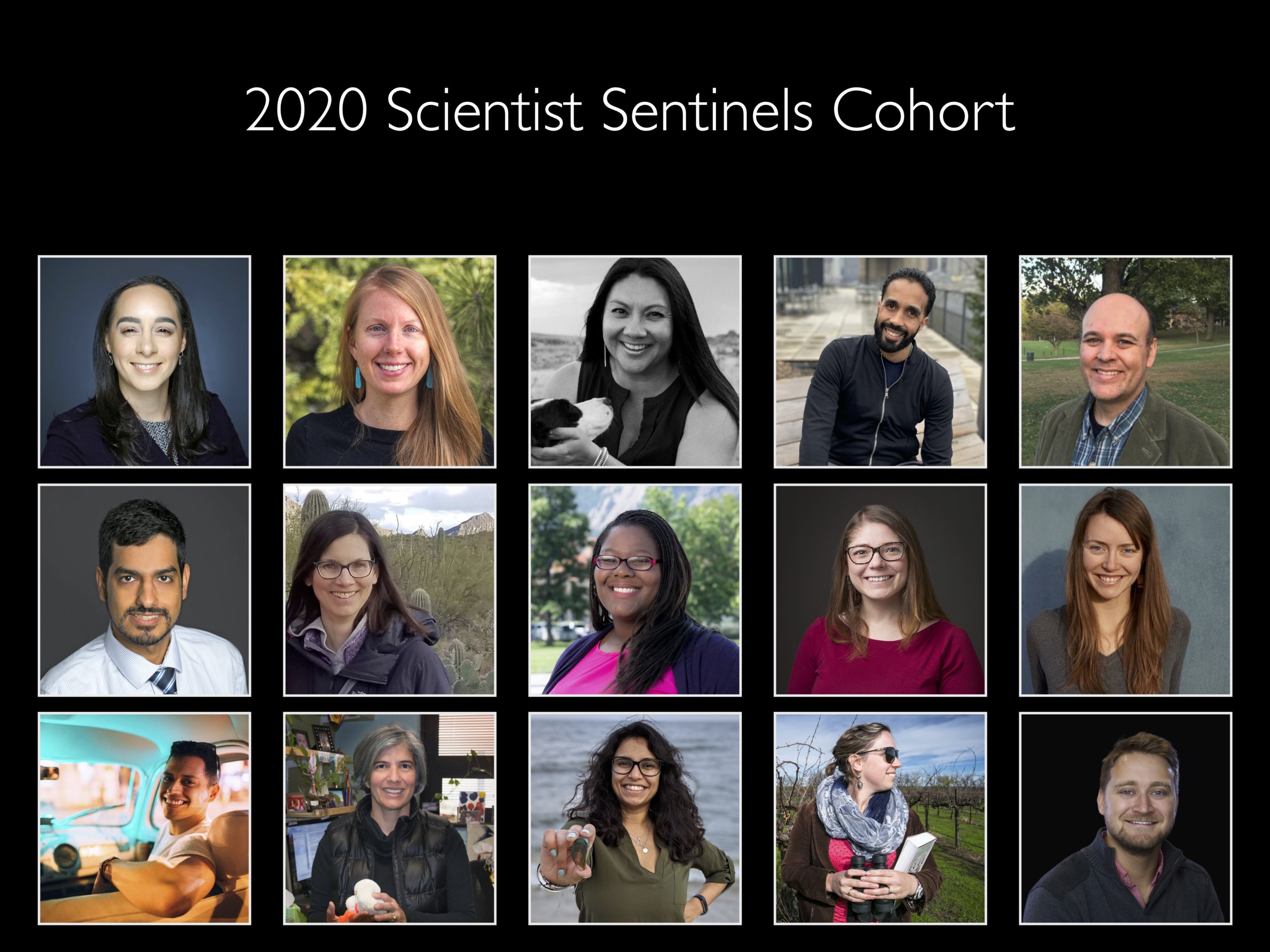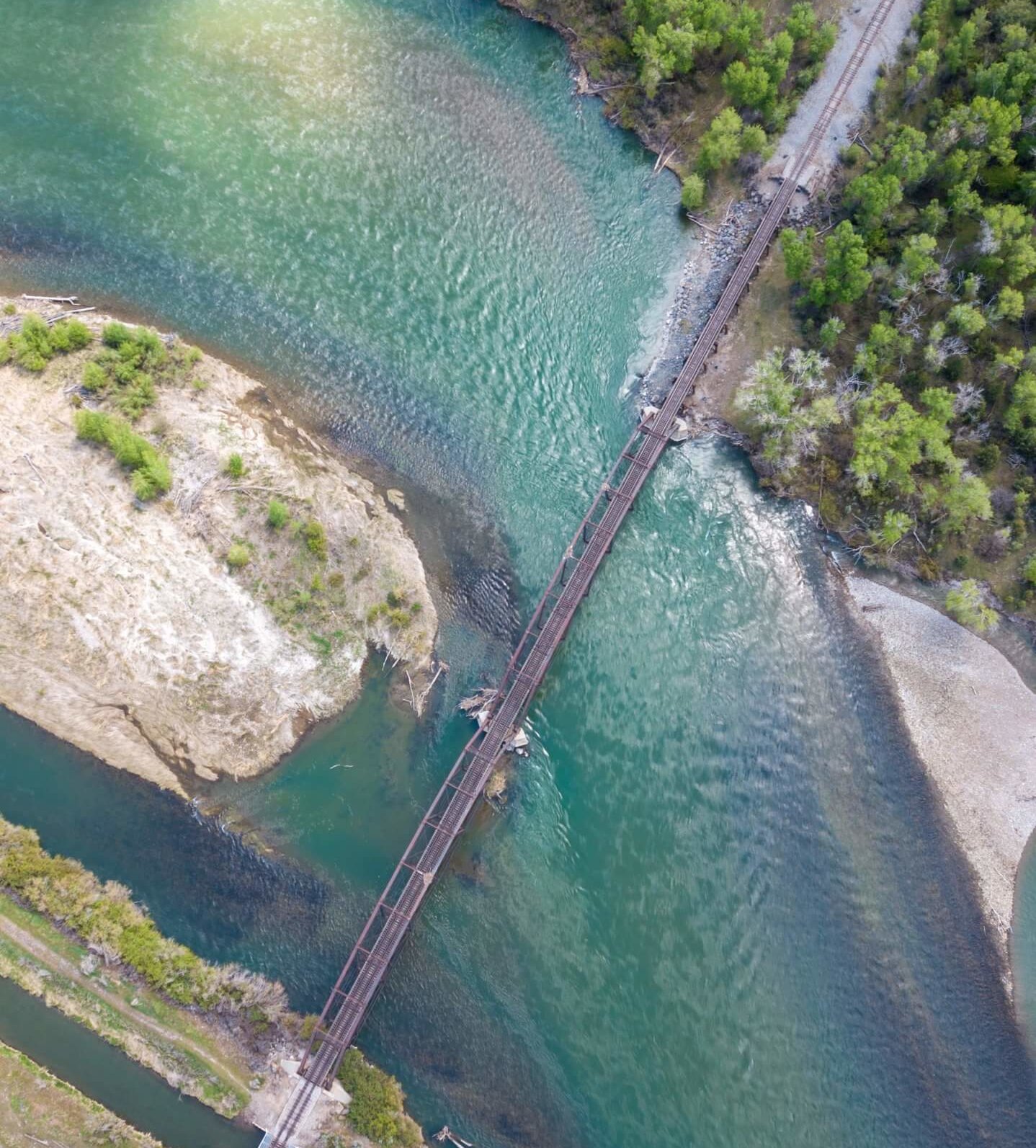I recently returned from my first post-pandemic, in-person leadership training workshop with the Global Sustainability Fellows and Diana Wall, lead scientist at Colorado State University in Fort Collins, Colorado. What joy to be with these inspiring young scientists from all over the world – working on issues from infrastructure to pollinators and everything in between! These PhD and Postdocs– world changers all – formed new and what will likely be lasting bonds. They started out strangers and ended friends and allies. Their communications skills and confidence vastly improved and I believe they left with a renewed sense of purpose.
Meeting these young scientists in person, being together again with the journalists who helped with the training, and facilitating an energetic and even electric workshop was like getting back together with the band – for one last concert. It was uplifting and poignant – most of all for me. It was one of my last leadership trainings with COMPASS. April 14th will be my last day as COMPASS’s Director of Science Outreach.
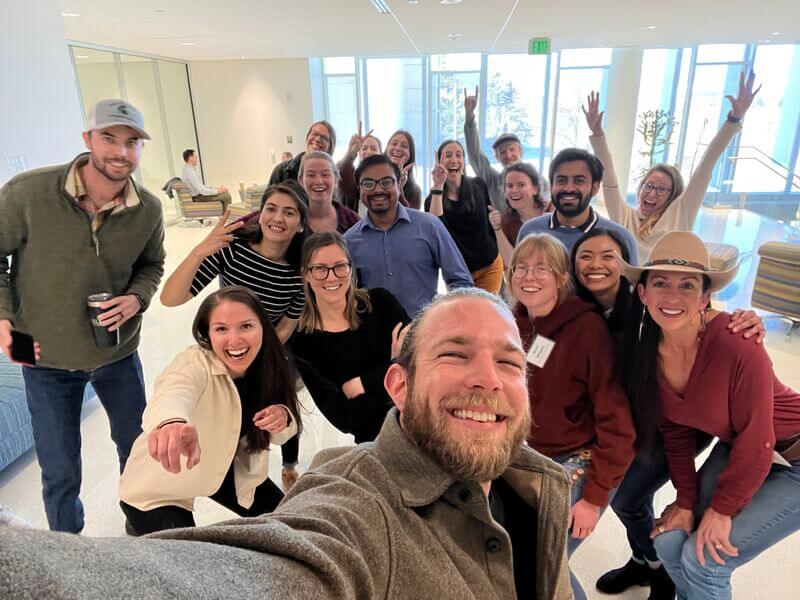
SoGES Sustainability Leadership Fellows. Photo credit: Brendon Anthony
The years have flown by – 22 of them! – since I started this journey. In March 2000, I left Vancouver BC and moved to the Monterey Bay Aquarium to begin work on the initial vision of COMPASS, then a joint program of 4 partners. Jane Lubchenco and Vikki Spruill founders of COMPASS, and visionary women, convinced me to come and help persuade academic marine scientists that it was worth stepping out of the safe confines of the “Ivory Tower” and use their evidence-based expertise to inform journalists, policymakers, and communities to make better decisions – and thus make their science matter.
Science communication was not even “a thing” then. We were pioneers, learn-as-you go practitioner coaches on how to engage in society’s conversations. In the early days, the conversation with scientists focused on, “Why should I?” It later shifted to “How should I?” I think COMPASS had some influence on that shift. My book, Escape from the Ivory Tower was an effort to synthesize the first 10 years of our work in the form of an easy read and entertaining guide for scientists – and a self-help book to encourage them.
When I first moved from my beloved British Columbia to California at the beginning of the millennium, I intended to come for 18 months then return to Vancouver. But from my first outreach efforts with scientists like Jane Lubchenco, Jeremy Jackson, Daniel Pauly, Roz Naylor, Ram Myers, Boris Worm, Ben Halpern, Daniel Schindler, Jonathan Patz, and many, many others, I saw that there was much work to be done – and I thrived on it. I was on fire, working late nights at the Monterey Aquarium and connecting marine scientists and journalists around the world. We worked with the scientists to powerfully communicate what the world needed to know: 90% of the big fish are gone; we are fishing down marine food webs, Marine Protected Areas are essential and powerful tools for ocean ecosystem recovery and resilience; a warmer world is a sicker world; we need a portfolio of habitats for salmon and other species to survive climate change; Aquaculture can be a drain on wild fisheries; those most at risk from global warming (developing countries) are least responsible for causing the problem – herein lies a global ethical challenge; and many more.
I really didn’t come with the expertise to do this – I had been a national parks biologist in Banff, a Director of Education at the Vancouver Aquarium, a journalist and columnist, but I kept trying to go where I saw a need and a good return on the investment for scientists’ efforts in conservation, public awareness and policy change. We then figured it out along the way and created opportunities for scientists to engage.
At a Society of Marine Conservation (SCB) conference in San Francisco, I spied a handsome, broad-shouldered man with a little smile that quirked his lips as he walked down to the front of the plenary hall, and sat in the front row. He had a pen tucked above his ear. “Who is that?” I asked the person next to me. “Oh, that’s Ken Weiss, the Oceans reporter for the LA Times.” At the break, I trotted down to the front, introduced myself and asked him if he wanted to join my panel; “ Scientists are from Venus, Journalists are from Mars.” He looked at me somewhat puzzled, then agreed. Months later on New Year’s Day he phoned me – and my life with Ken as my partner began. This led to my move to NCEAS in Santa Barbara which has been a warm community and a thriving place for meeting environmental scientists.
Our COMPASS efforts kept evolving. We moved beyond oceans. Doing outreach on papers was a heavy one-at-a-time lift and I thought, “better to teach a person to fish.” I increasingly focused on developing and collaborating with leadership programs like the Aldo Leopold Leadership Program, School of Global Environmental Sustainability (SoGES), the Wilburforce Leaders in Conservation and Science, the Vega Fellows in Marine Science, Leaders for Sea Change, Liber Ero, Simon Fraser, and more. I learned what scientists leadership programs need – good leadership. They survive and thrive on it. Environmental scientists deeply need a supportive network to help them survive the losses and celebrate the wins.
The reason I have stayed so long with COMPASS is simple. I love the work. While I have missed the personal connections that are most powerful in our in-person workshops, I have found joy and satisfaction during the pandemic in being part of the reinvention of our process to make our workshops and seminars virtual. Working with the small but mighty COMPASS team, with connections through our online video chats, and our continuing work with scientists has helped sustain me during this long pandemic.
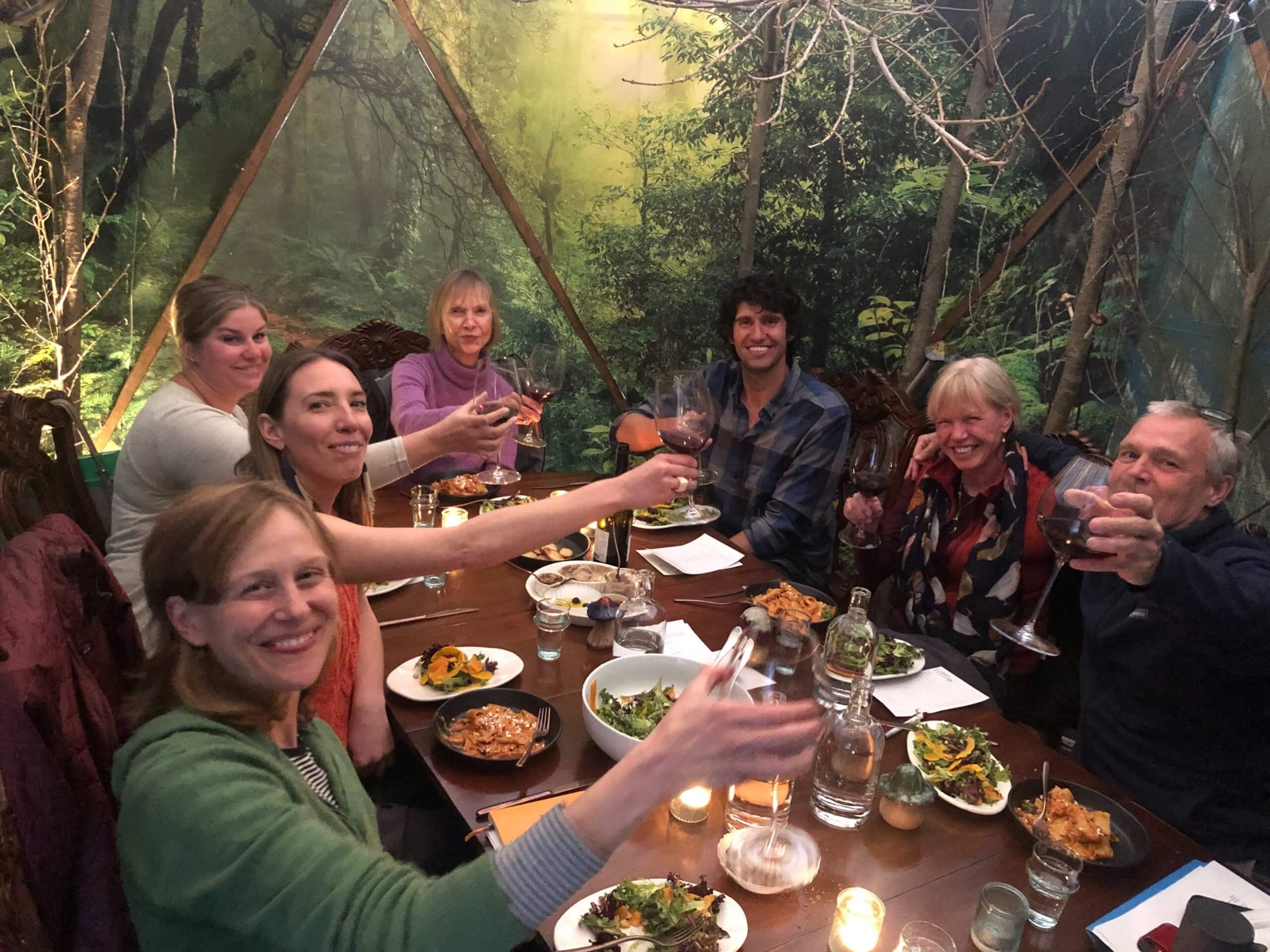
Nancy with Diana Wall and Journalist Trainers for the SoGES Sustainability Leadership Fellow Workshop
At the beginning of the pandemic, since I was not leading in-person workshops, I began writing a monthly column called In the Naturehood. Instead of traveling the world to teach communications to scientists as I had until then, I was at home and could pay attention to what was happening in the natural world around me. I decided to return to my roots as a writer and naturalist with the goal of bringing awareness of local wildlife and their issues to my community through our local paper: The Coastal View News. This little paper is avidly read each week.
The result has been surprisingly satisfying. It has given me a voice in my community and in several cases shifted the conversation around such issues as the use of rodenticides (rat poison), co-existing with wildlife, helping wildlife during drought, and the problems with “plinkers” e.g., those who shoot birds and other animals for target practice.
Writing this column has whetted my appetite to do more: maybe a third book, perhaps even a second edition of “Escape from the Ivory Tower: A guide to making your science matter.”
So what’s next for me? After a break and a few adventures, I will work on select projects. I will continue to have a perch at NCEAS as a senior fellow and be part of that wonderful community. I’ll be active in my role as a member of the board of directors of two Canadian Foundations focused on biodiversity conservation, Sitka and the Nature Trust of British Columbia, as well having more time for my advisory role with the Liber Ero Fellows. And I am happy to be a resource for the COMPASS team and stay connected with the COMPASS community. And who knows? I may even return as a consultant to help with leadership programs! I still love the work.
I have always been guided by Mary Oliver’s question of purpose: What are you going to do with your one wild and precious life? For me, it’s always been about conservation of the natural world. And that will never change. I am just going to take more time now to experience it.
After April 14th, you can reach me at nancyebaron@gmail.com or baron@nceas.ucsb.edu.
